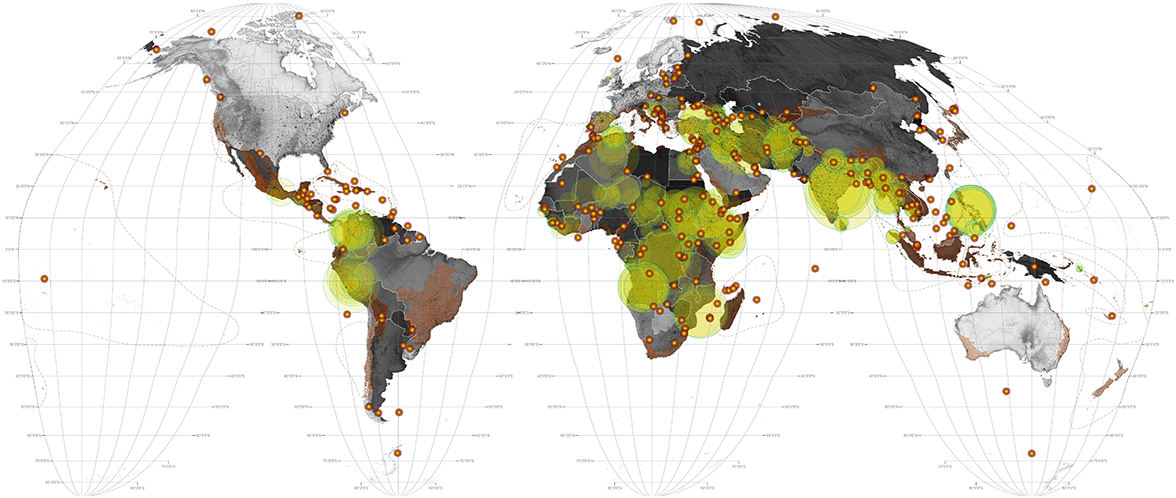The world's biological hotspots are spread across 142 nations. If their biodiversity is to be secured into the future each hotspot requires holistic planning which would necessarily transcend national borders. Because of vested interests, such land use planning for long term biodiversity protection, representation and connectivity is difficult at the best of times. Things are significantly more complicated when multiple, neighboring nations, who are in many cases conflict ridden, corrupt and poor, are involved.
It is concerning then that the nations with sovereign jurisdiction over the hotspots — with the exception of New Zealand, Australia, the USA, Singapore, Japan, and Chile — are all ranked poorly by Transparency International's 2015 Corruption Perceptions Index. 1 Out of 168 nations surveyed, Denmark is perceived as the world's least corrupt nation and Somalia as the most corrupt. Denmark does not preside over a hotspot, Somalia does.
1 Transparency International, "Corruption Perceptions Index 2015" https://www.transparency.org/cpi2015/ (accessed June 1, 2016)
1. Armed Conflict Events
John Dittrich Hallberg, "PRIO Conflict Site 1989-2008: A Geo-Referenced Dataset on Armed Conflict," Conflict Management and Peace Science 29 (2012): 219-232. Dataset available at https://www.prio.org/data/armed-conflict/conflict-site/.
2. Perceived Governmental Corruption
Transparency International, "Corruptions Perception Index 2013," http://www.transparency.org/cpi2013/results#myAnchor1 (accessed November 18, 2014).
3. Territorial Disputes
"Disputes-International," in The World Factbook 2013-2014 (Washington, DC: Central Intelligence Agency, 2013). Available at https://www.cia.gov/library/publications/the-world-factbook/fields/2070.html (accessed November 21, 2014).
4. Hotspots
Critical Ecosystem Partnership Fund, "The Biodiversity Hotspots," http://www.cepf.net/resources/hotspots/pages/default.aspx (accessed July 1, 2014). Data made available under the Creative Commons BY-SA 4.0 License: https://creativecommons.org/licenses/by-sa/4.0/legalcode.




